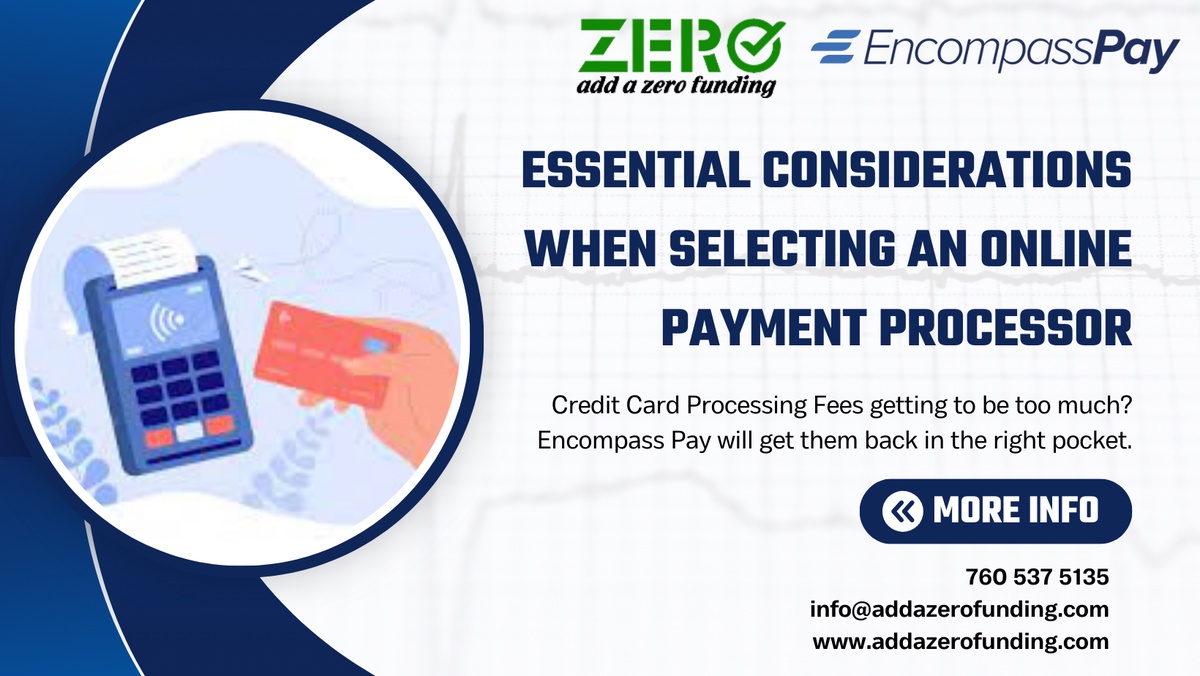Credit cards are a pivotal component of modern commerce. Their processing enables businesses to accept electronic payments, providing convenience for customers and expanding sales avenues. When a credit card transaction occurs, the payment processor acts as a bridge between the merchant, the issuing bank, and the card networks like Visa or Mastercard.
Credit card processing involves authorization, where the processor checks the card's validity and available funds, followed by settlement, where funds get transferred to the merchant's account. Security measures like encryption safeguard sensitive information. Efficient processing ensures seamless transactions, fostering trust and efficiency in today's global marketplace. However, commercial establishments must choose a suitable online payment processing company to ensure smooth and secure operation. They should consider the following key factors:
Security and Fraud Protection:
Look for companies that offer robust security measures like encryption, tokenization, and 3D Secure to protect sensitive information.
Ensure they have advanced fraud detection tools and protocols in place.
Payment Methods and Options:
Check if the processor supports various payment methods, including credit/debit cards, digital wallets, bank transfers, and alternative payment methods popular in your target market.
Integration and Compatibility:
Ensure the payment gateway integrates seamlessly with your website or e-commerce platform.
Check if the payment processor is compatible with your technology stack.
Fees and Pricing Structure:
Understand the fee structure, including transaction fees, monthly fees, setup fees, and other charges.
Be aware of any hidden fees or additional costs.
Global Reach and Currency Support:
If you operate internationally, ensure the payment processor supports the currencies and regions where you do business.
Customer Support and Service:
Prompt and reliable customer support is essential, especially in case of technical issues or emergencies.
PCI Compliance:
Ensure the online payment processing company offers PCI DSS-compliant processors to protect cardholder data.
Reporting and Analytics:
Look for platforms that offer detailed transaction reporting, analytics, and insights to help you make informed business decisions.
Scalability and Growth Potential:
Choose a payment processor that can grow with your business and handle increased transaction volumes.
Redundancy and Reliability:
Ensure the payment gateway has a reliable uptime record and offers redundancy to prevent downtime.
User Experience:
A smooth and intuitive payment experience is crucial for customer satisfaction. Test the checkout process from a user's perspective.
Reviews and Reputation:
Read reviews, testimonials, and case studies to understand other businesses' experiences with the payment processor.
Contract Terms and Flexibility:
Understand the contract terms, including contract length, cancellation fees, and other restrictions.
Compliance and Regulatory Considerations:
Ensure the payment processor complies with industry regulations and standards.
Additional Services and Features:
Some processors offer extra features like subscription billing, tokenization for secure card storage, and more. Evaluate if these align with your business needs.
By carefully considering these factors, businesses can choose an online payment processing company that aligns with their business goals and provides their customers with a secure, reliable, and user-friendly payment experience.


No comments yet